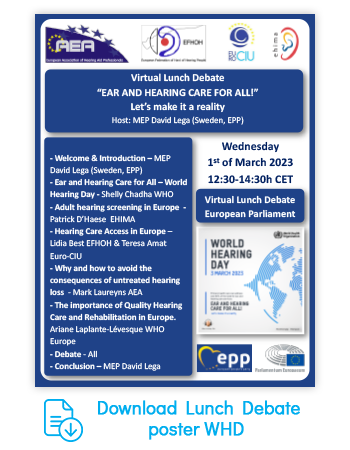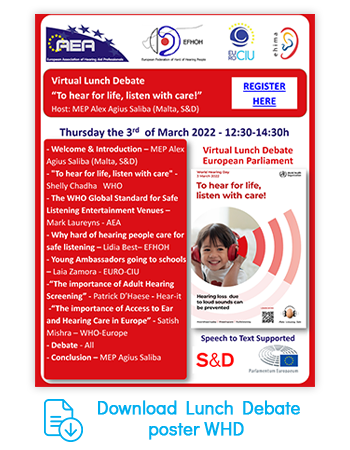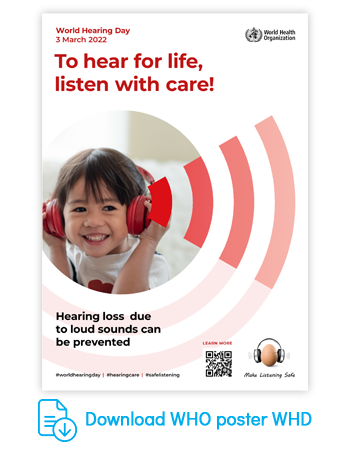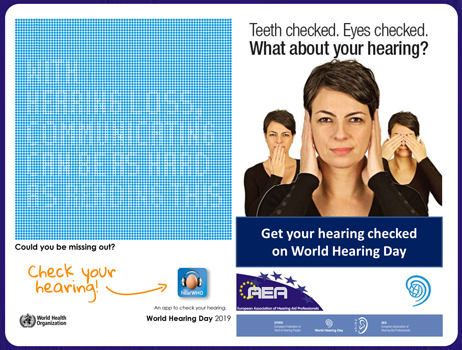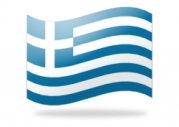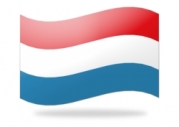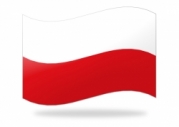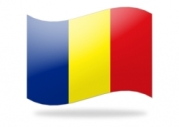3rd of March 2025 - World Hearing Day
- font size decrease font size increase font size
Register here for the Lunch Debate
Austria |
Belgium |
France |
Germany |
Greece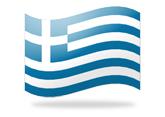 |
Italy |
Luxemburg |
Malta |
Netherlands |
Poland |
Portugal |
Romania |
Spain |
Switzerland |
Lunch Debate from the European Parliament for World Hearing Day 2025 on YouTube
Lunch Debate from the European Parliament for World Hearing Day 2025 - 01
MEP Zala Tomašič
Lunch Debate from the European Parliament for World Hearing Day 2025 - 02
Shelly Chadha
Lunch Debate from the European Parliament for World Hearing Day 2025 - 03
Monika Chaba
Lunch Debate from the European Parliament for World Hearing Day 2025 - 04
Lidia Best
Lunch Debate from the European Parliament for World Hearing Day 2025 - 05
Ariane Laplante-Lévesque
Lunch Debate from the European Parliament for World Hearing Day 2025 - 06
Mark Laureyns
Lunch Debate from the European Parliament for World Hearing Day 2025 - 07
Stefan Zimmer
Lunch Debate from the European Parliament for World Hearing Day 2025 - 08
Debate and Conclusions
3rd of March 2024 - World Hearing Day
Lunch Debate for World Hearing Day 2024 from the European Parliament
Since 2013, the joined associations EFHOH, AEA and EFHIMA, representing more than 52 million European hearing care users, more than 40.000 European hearing care professionals and the European hearing aid industry, organise every year a lunch debate from the European Parliament for World Hearing Day, in strong collaboration with the World Health Organization.
This year, the theme for World Hearing Day is “CHANGING MINDSETS”, Let’s make ear and hearing care a reality for all!
We thank MEP Jarosław Duda (EPP – Poland) for hosting this lunch debate.

Welcome
MEP Jarosław Duda
WHO World Hearing Day theme
Shelly Chadha -WHO
Why we need to change mindsets
Lidia Best– EFHOH
Myths and reality on hearing loss and hearing care
Mark Laureyns – AEA
Changing the Mindsets on Hearing Care
Stefan Launer – EHIMA
Changing mindsets to ensure inclusive health systems
Emma Smith -WHO Europe
Debate & Conclusion
All
3rd of March 2023 - World Hearing Day
Report on the Lunch Debate
AEA, EFHOH, Euro-CIU and EHIMA join forces with WHO for this Virtual Lunch Debate on the1st of March 2023 from 12.30 to 14.30 h CET.
Theme this year is: “Ear and hearing care for all! – Let’s make it a reality”.
The host is MEP David Lega (Sweden, EPP)
Welcome & Introduction
MEP David Lega (Sweden, EPP)
Ear and Hearing Care for All – Let’s make it a reality – World Hearing Day 2023
Shelly Chadha - WHO Geneva
Adult hearing screening in Europe: a key prerequisite towards a hearing health strategy
Patrick D’Haese – EHIMA
Hearing Care Access in Europe – Hearing Aids
Lidia Best - EFHOH
Hearing Care Access in Europe – Cochlear Implants - Teresa Amat
Teresa Amat - Euro-CIU
Why and how to avoid the consequences of untreated hearing loss
Mark Laureyns – AEA
The importance of Quality Hearing Care and Rehabilitation in Europe
Ariane Laplante-Lévesque – WHO Europe
Debate and Conclusions – Full Debate
3rd of March 2022 - World Hearing Day
Lunch Debate 2022 program and video’s:
Welcome & Introduction
MEP Alex Agius Saliba (Malta, S&D)
The WHO introduction on “To hear for life, listen with care"
Shelly Chadha WHO
The "Make Listening Safe" workgroup and the "WHO Global Standard for Safe Listening Entertainment Venues"
Mark Laureyns - AEA
Why hard of hearing people care for safe listening
Lidia Best - EFHOH
Why and how the organisation of Cochlear Implant users, started a program of Young Ambassadors going to schools to promote safe listening
Laia Zamora - EURO-CIU
“The importance of Adult Hearing Screening”
Patrick D’Haese - Hear-it
“The importance of Access to Ear and Hearing Care in Europe”
Satish Mishra - WHO-Europe
Full Lunch Debate including the Debate and Conclusions
Austria |
Belgium |
France |
Germany |
Greece |
Italy |
Luxemburg |
Malta |
Netherlands |
Poland |
Portugal |
Romania |
Spain |
Switzerland |
3rd of March 2021 - World Hearing Day
Lunch Debate 2021 program and video’s:
Welcome & Introduction
MEP Alex Agius Saliba (Malta, S&D)
HEARING CARE FOR ALL
World Report on Hearing - Shelly Chadha – WHO
Access to Hearing Care during COVID-19
Morten Buan – EFHOH
User experiences with Cochlear Implants
Robert Mandara - EURO-CIU
Message from Minister Julia Farrugia Portelli
Maltese Ministry for Inclusion and Social Wellbeing
The use of hearing aids and cochlear implants
Patrick D’Haese - Hear-it
Hearing screening and hearing care for young active people with hearing loss – studies and new findings
Mark Laureyns – AEA
Download Poster for 3rd of March 2021 Virtual Lunch Debate.pdf
3rd of March 2020 - World Hearing Day
3rd of March 2019 - World Hearing Day

Lunch Debate on “Protect and Check your Hearing”
Hosted by MEP Igor Šoltes (Slovenia, Greens/EFA) – European Parliament in Brussels –
Wednesday the 6th of March 2019

Participants gathering in front of the European Parliament,
welcomed by the MEP staff (left) and lunch debate in Action (right).
It is a yearly tradition that the joined associations EFHOH (users), AEA (professionals), and EHIMA (manufacturers) in strong cooperation with the World Health Organisation for World Hearing Day organise a lunch debate inside the European Parliament in the first week of March since 2013.
The year, the theme of this lunch debate is “Protect and Check your Hearing”
Two teams of Audiology Students and their teachers have allowed everybody inside this parliament to have their hearing checked in the morning. In total 40 people, working in the European Parliament, had their hearing screened of which 29 had perfectly normal hearing and 11 had a hearing loss in one or both ears. They were given an explanation on the results of their hearing test and received the information on how to install and use the “hearWHO” self test on their smartphone.

The two teams of audiology students & teachers (right Marie Haps – Vinci University College Brussels / left Thomas More University College Antwerp) and in the middle MEP Igor Šoltes during his hearing screening.
More than 110 participants attended the Lunch Debate, among which a lot of policy makers, MEP’s and MEP staff, representatives of user associations, professional and manufacturer organisations.
MEP Igor Šoltes (Slovenia, Greens/EFA) gave the introduction to the lunch debate, he testified that when we approached him during the EFAS International Conference in Ljubljana last year, to host this years’ lunch debate, he agreed right away, since Prevention, Awareness and Intervention for Hearing Loss, which is an invisible disability with significant impact on all aspects of quality of life, is so essential and dear to him. He was also a rock musician and therefore he knows that loud music can be tough for your ears.
Shelly Chadha from the World Health Organisation kicked off the presentations during the lunch debate with “Safe Listening and Early Identification at all ages“ 60% of childhood hearing loss is preventable. Hearing Screening needs to be done at birth, at school age but also when we turn 50. She also introduced the theme of World Hearing Day 2019, “Check your Hearing” and the brand new “HearWHO” self-test to check your hearing on a smartphone which proves to be a super tool to check our hearing and to create awareness.
Kim Ruberg from Hear-It presented a new very elaborate scientific report on the “THE SOCIAL AND ECONOMIC COSTS OF HEARING IMPAIRMENT” … one of the shocking conclusions of this report is that Untreated Disabling hearing loss costs 185 billion Euro in the EU every year … which is 25 billion Euro more than the whole EU budget for 2018! He also stated that in the EU, 22,6 million people live with untreated hearing loss … and this leads to significant negative physical, mental and social consequences. People who use hearing aids are happier, healthier and wealthier and have a better quality of life than people with untreated hearing loss.
Although Awareness and Intervention are very important … the first focus should be Prevention! Mark Laureyns from the European Association of Hearing Aid Professionals told us more on how we can make sure that Hearing Protection is effective and how we can ensure that people use it whenever it is required. More than 80% of young people don’t use hearing protection, even when they know they should. All types of hearing protection are effective and allow you to understand in noise. But if you want hearing protection to be comfortable and preserve good sound quality, you should use re-useable or even better customised hearing protection with music filters. The new EU PPE (Personal Protective Equipment) regulation which will be effective from the end of April 2019 results in better quality control of personal hearing protection!
Darja Pajk, from the European Federation of Hard of Hearing People, presented the social aspects of early identification of hearing loss. It means screening at very young age but since hearing loss can occur at any age also adult screening. It is about detecting the problem at the earliest possible time. The sooner you can detect hearing loss, the better the outcome for the person with the loss and the sooner Quality of Life can Improve. 60% of the Hard of Hearing People confirmed feeling anxiety and depression following the event of a progressive or sudden hearing loss. If we make our society accessible for people with hearing loss and if we all would understand better what it is to be hearing impaired … inclusion, participation would increase, and social and personal stigma would be resolved.
Mladen Veršič, the president of the Deaf and Hard of Hearing Association of Slovenia concluded the presentations with his testimony on how they were very successful in organising a Hearing Awareness Campaign last year. They had 312.684 reruns of a 30 second video on Hearing Awareness on 380 digital displays in 135 public transportation network vehicles in Slovenia. They used the joined IFHOH – EFHOH meeting in Ljubljana last year to contact the key stakeholders and this was, by the way, the reason that MEP Igor Šoltes agreed to host this successful Lunch Debate.
After the presentations, a very dynamic debate developed moderated by MEP Igor Šoltes. The points discussed were, the importance of not over-compressing the dynamics of music, in order to keep listening safe and still maintain good quality music. This point was very well taken, and it is also the reason why the new ITU/WHO standard on safe listening is focussing on weekly dose of sound exposure and not only at the maximal loudness. Further we should promote quality labels, like “Mastered for iTunes”, where one of the requirements is good dynamics and no over-compression. Another question raised was how we can ensure the points discussed during this lunch debates are taken further by politicians and can be topics for the coming up European Elections. MEP Šoltes responded that for the elections it was maybe a little late, but he certainly agrees that much more attention needs to be given on the invisible disability of hearing loss and that he takes this at heart. To conclude, a question was raised on how ITU/WHO can ensure that the new Safe Listening Guidelines are enforced and used by the big companies in their products. Shelly Chadha from WHO explained that the ITU standards are voluntary, but the big companies are actively involved in developing these standards. WHO also urges states and the European Commission to incorporate these guidelines in their local regulations.
We can conclude that is was a very well attended and high quality lunch debate promoting quality prevention and awareness on Hearing and Hearing Care.
Download attachments: AEA news Report 6th of March 2019 Lunch Debate on Hearing in the European Parliament
3rd of March 2018 - World Hearing Day
AEA Theme for World Hearing Day:
Hear the future … Hearing Care to keep you INDEPENDENT
Today, 52 million persons in Europe live with a hearing loss. This number will increase, mainly because we are living longer than previous generations. Untreated hearing loss has negative effects on your personal life, for example reduced social activity and the risk of becoming more dependent on others.
Read the new AEA Action Plan for World Hearing Day 2018
Professor Hélène Amieva, a Neuropsychologist and Epidemiologist working at Inserm in Bordeaux (FR), has recently published a study in Journals of Gerontology, Medical Science. This study is based on data from 3,777 persons aged 65 and older who had been followed over a 25-year period.
The study shows that persons with untreated hearing loss are at a higher risk of being dependent on help from other persons in their daily life. According to the study, persons with hearing loss who use hearing aids have the same chance of staying independent then normal hearing persons.
3rd of March 2017 World Hearing Day

Welcome & Introduction – MEP Alex Agius Saliba (Malta, S&D)










